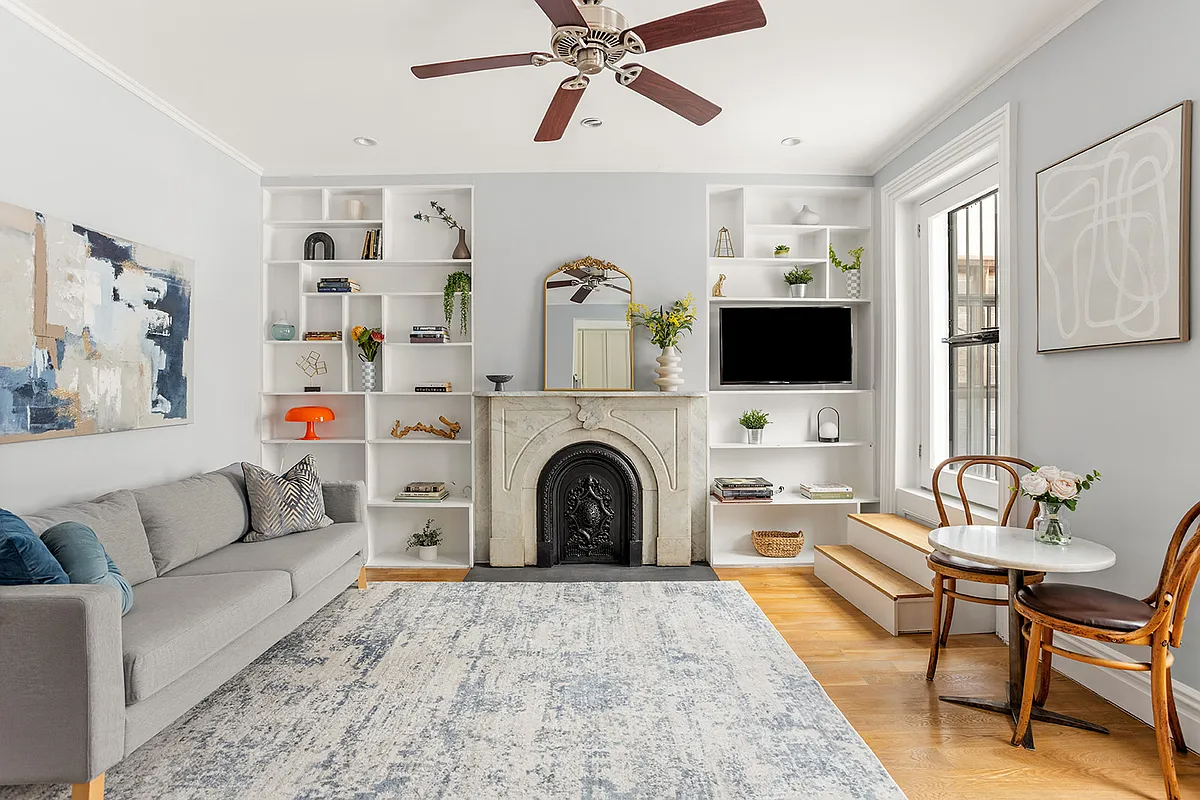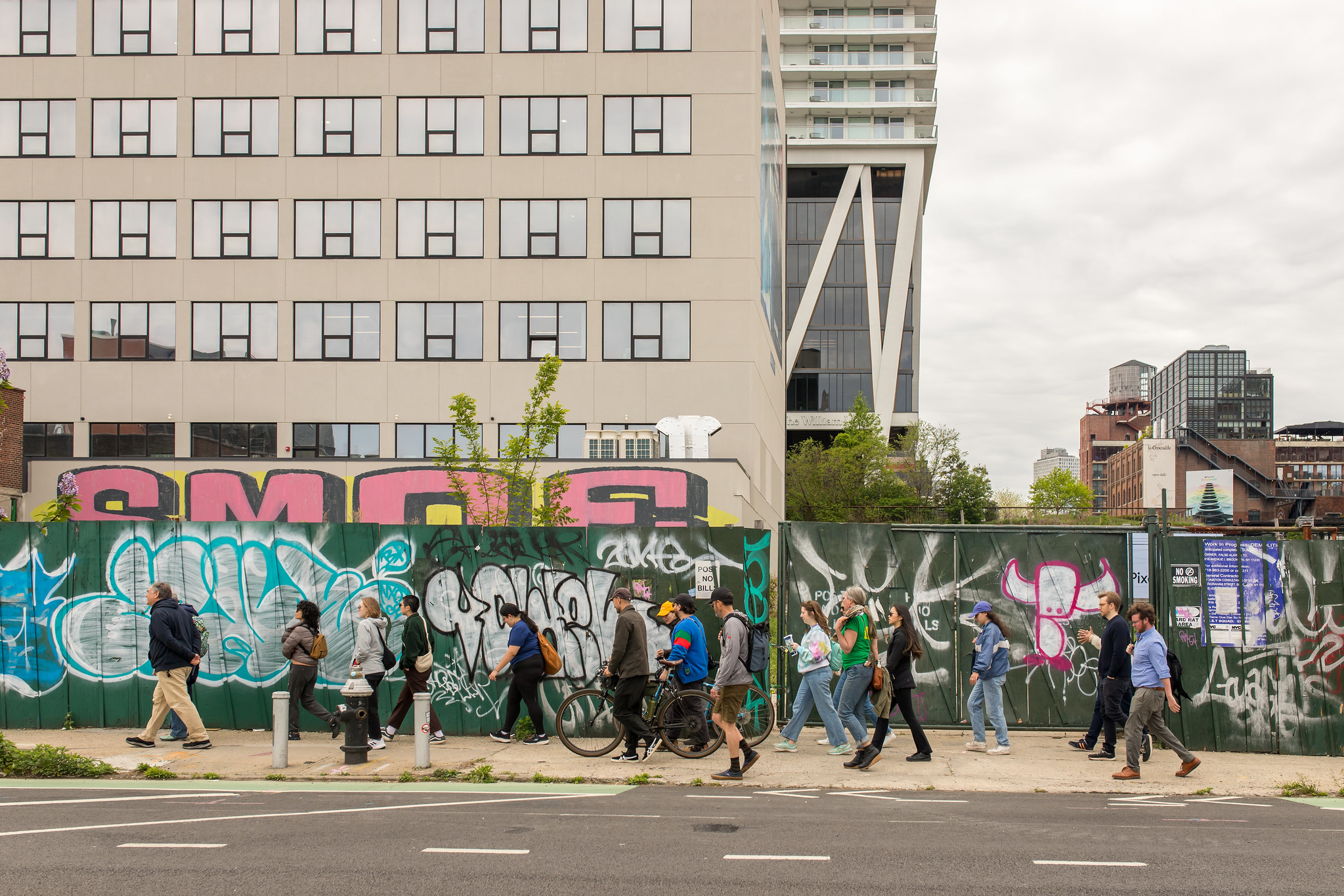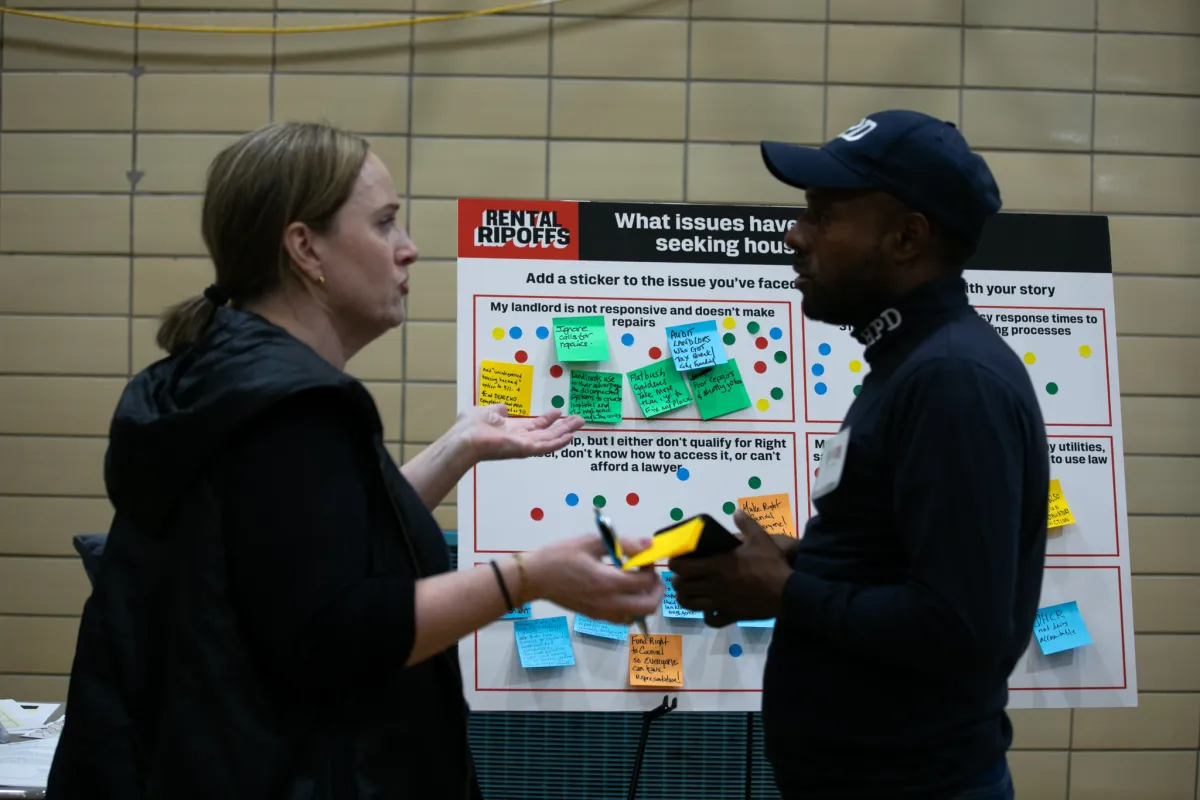Banks Throw Co-Housing Project a Curveball
The design of the Brooklyn Co-Housing Group’s new home may be passive, but their bankers certainly aren’t. According to an email that went out to the 600 or people who’ve expressed some kind of interest in being a part of the cooperative living experiment, the lender has just upped the percentage of the project that…

 The design of the Brooklyn Co-Housing Group’s new home may be passive, but their bankers certainly aren’t. According to an email that went out to the 600 or people who’ve expressed some kind of interest in being a part of the cooperative living experiment, the lender has just upped the percentage of the project that must be presold from 51 to 75. “We are not daunted we will just have to grow faster than previously anticipated,” said Rick, Nancy, Miriam, Victor, Rob, Joel, Sue, Brian, Trish, Elvira, Ed, Merce, Kim, Jasper, Carl, Elsie, Lissa, Gracie, JoAnn, Tiger, Caden, Ken, Hilary, Marina, Marion, Max, Kristi and Alex. In other news, the first 16 families have already picked out their apartments in the complex at 1901 8th Avenue in Windsor Terrace. If you think you might be interested, there’s an orientation session this Saturday at the Memorial Baptist Church on 16th Street at 8th Avenue at 2 p.m.
The design of the Brooklyn Co-Housing Group’s new home may be passive, but their bankers certainly aren’t. According to an email that went out to the 600 or people who’ve expressed some kind of interest in being a part of the cooperative living experiment, the lender has just upped the percentage of the project that must be presold from 51 to 75. “We are not daunted we will just have to grow faster than previously anticipated,” said Rick, Nancy, Miriam, Victor, Rob, Joel, Sue, Brian, Trish, Elvira, Ed, Merce, Kim, Jasper, Carl, Elsie, Lissa, Gracie, JoAnn, Tiger, Caden, Ken, Hilary, Marina, Marion, Max, Kristi and Alex. In other news, the first 16 families have already picked out their apartments in the complex at 1901 8th Avenue in Windsor Terrace. If you think you might be interested, there’s an orientation session this Saturday at the Memorial Baptist Church on 16th Street at 8th Avenue at 2 p.m.
Co-Housing Building May Be ‘Most Energy Efficient’ in NYC [Brownstoner]
Brooklyn Co-Housing Lands in Greenwood Heights [Brownstoner] GMAP
Rendering from Brooklyn Co-Housing Website





“It also involves a lot of meetings.”
that sounds like a nightmare.
i can’t imagine why anyone without kids would want to be a part of something like this.
I have to check in here as I always do when cohousing comes up.
Kids, PLEASE check out something called “the Internet” and do even the least little cursory reading. Your comments are ignorant and puerile…I’m frankly embarrassed for you.
NOW, listen, this is a coop. No huge stretch of the imagination there. People have their own apartment, doors, windows, a kitchen, bathroom…normal. Please log that in your brain.
In fact, many cohousing developments in the US have nice condo complex-like homes with a main street twist, white picket fences and a town “green” of sorts.
Basically, the difference is a cohousing development is an intentional community. This one will specificall differ from the “regular” NYC coop/condo in that it is not landlord sponsored (so you have very old tenants who continue to rent and newbies who got ripped off and then realize the building has all sorts of problems–e.g. recent conversion of Brooklyn 30’s and 40’s era rental apartment houses into coops). They are not condos where the profit goes to the developer and then the, these days, the buyers have to worry that the other units will sell…and some lose their shirts (there ARE true condo horror stories out there across the country).
See, the cohousing group comes together, usually, for years before anything is built. Eventually, there is a process in place, relationships, understanding, the issues are hashed out…basically a sense of community is recreated and rules of governance better than any regular contentious co-op in NYC.
So, if you want your own apartment with very low utility costs (elec, heating, H/W, broadband access, etc.), privacy (and YES, again, your own home with a, yes, real kitchen, hello), the option to have people around, a dinner you don’t necessarily have to prepare when there’s a group dinner. Knowing that there’s nothing to worry about when you go away (even for three months…a favorite of academes)…plants, mail, pets, and if you have young kids, there are lots of responsible adults who may be able to “sit” for you/back and forth exchange.
There are a lot of plusses. My problem with the site they have found is the area is a little depressing and not particularly where I see myself living. I was so excited when they were in negotiations to build at the St. Michael’s Church/Carlton Mews project in Fort Greene…but that was going to be too expensive.
Well, all the power to them. At this stage in life I keep wondering if maybe a cohousing community in “the country” might be a better option for us. Depending where the husband unit’s career goes in the next couple of years (academic), and, sadly, which family elder passes away and when, I’m pretty much hoping to totally retire and garden in some place that’s pleasant with clean air and less stress before he retires. I’d love a college town with a good medical center.
We can always rent a pied-a-terre in NYC/Brooklyn if we’re that desperate to have a place to stay when we’re here but we can also spring for a B&B as needed. Plus, there appears to be a growing number of homeowners who, instead of renting out the garden apartment to a tenant, are opting on short-term and vacation rentals. Temporary solution would probably be cheaper and have less worry involved. I wouldn’t want a studio or one-bedroom apartment with mail piling up if we didn’t come back for 3-months. See, that’s were a Brooklyn cohousing living situation would be good in terms of security, safety, having you apartment looked after, etc. but it would be unfair, to a cohousing community, possibly against the founding parameters, to count on buying a studio but only be in residence a couple of weeks or months a year.
Anyway, please, read up a little on co-housing before running your mouths.
the way you describe it, it makes it sound like nothing more than buying friends. or buying into a group of friends
*rob*
I have friends who live in co-housing in Amherst, MA. The way it works is: You do have your own kitchen, etc, but there are communal meals once a week which you do not have to eat. You do however have to contribute to the community in some way. It also involves a lot of meetings. My friend is one of the most social people I know, and the constant interactions that go on in this community works well for her. There does not seem to be that much friction in the community but there is a constant stream of everyone in and out of each other’s houses. If the idea of having a closeknit community appeals to you, this environment can be wonderfully supportive. However, if you like some alone time, no so much.
i might get flack for this, but ive seen people handing out pamphlets or something about this. or some sign up sheet or something, this was outside the food co-op. crazy googley eyes. they are probably very nice people tho.
*rob*
I think once you are in the sect or the family or whatever, the “elective” aspect of communal duties becomes much much less elective.
It is nothing like a co-op. In a co-op your only communal obligation is to pay your maintenance.
I think the apartments have their own kitchens, no? You have a choice to use the communal or private kitchens? Is there mandatory communal kitchen duty? If all of the “communal” aspects of this development, playground, common areas, are elective, then how does it differ from a coop building with similar extras? Bottom line – how much mixing is actually required, how much extra work, beyond a regular coop situation?
Freaks
First really good chuckle of the morning Sam.
And how is this really different, effectively, from a Kibbutz? Anyone know much about those communities?